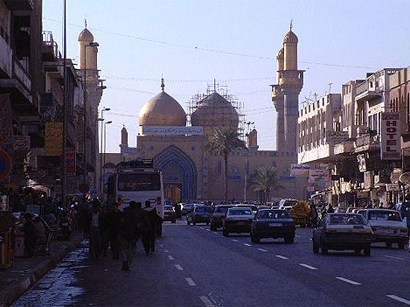Iraq's top Shi'ite Muslim cleric criticized the government and international agencies on Friday for failing to do enough to help hundreds of thousands of civilians displaced by fighting between government forces and Sunni Islamist insurgents, Reuters reported.
Grand Ayatollah Ali Sistani, the majority sect's most influential cleric, said in a sermon delivered by an aide that the uprooted people were living under "cruel and difficult economic and humanitarian conditions".
"The institutions concerned with this are still not meeting the scale of the hardships and suffering, despite the promises that we heard of help," his aide Ahmed al-Safi said in the Shi'ite holy city of Karbala.
The United Nations say more than 2 million people have been displaced within Iraq, most of them forced from their homes by conflict in the western province of Anbar and last month's offensive led by the al Qaeda offshoot Islamic State.
Most of those driven from their homes by last month's fighting have fled to the autonomous northern Kurdistan region, but many of the majority Shi'ite population have moved to Baghdad and Iraq's mainly Shi'ite southern provinces.
Sistani said money which had been pledged to support them had not materialized, leaving the displaced dependent on the generosity of individual donors.
"The authorities have to undertake their responsibilities fully and deal with this humanitarian issue with all seriousness - be those authorities local or international," he said.
The 83-year-old Sistani, who hardly ever appears in public and delegates aides to deliver his sermons, reiterated his call for Iraq's politicians to end weeks of deadlock and agree on a new unity government that could tackle the Islamist insurgency.
Parliament voted in a new speaker on Tuesday and must now choose a president and prime minister. Caretaker Prime Minister Nuri al-Maliki is seeking a third term in office but faces opposition from Kurds, Sunnis and some Shi'ites who accuse him of marginalizing his opponents during eight years in office.






